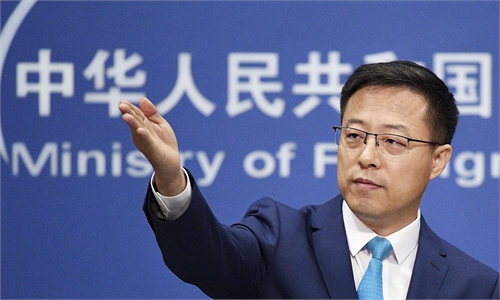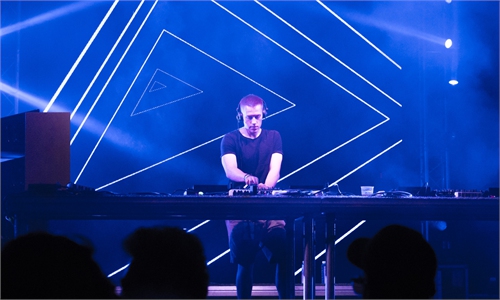ARTS / BOOKS
With renowned World Laureates Forum, China opens its arms wider to global science cooperation
Uniting for the future
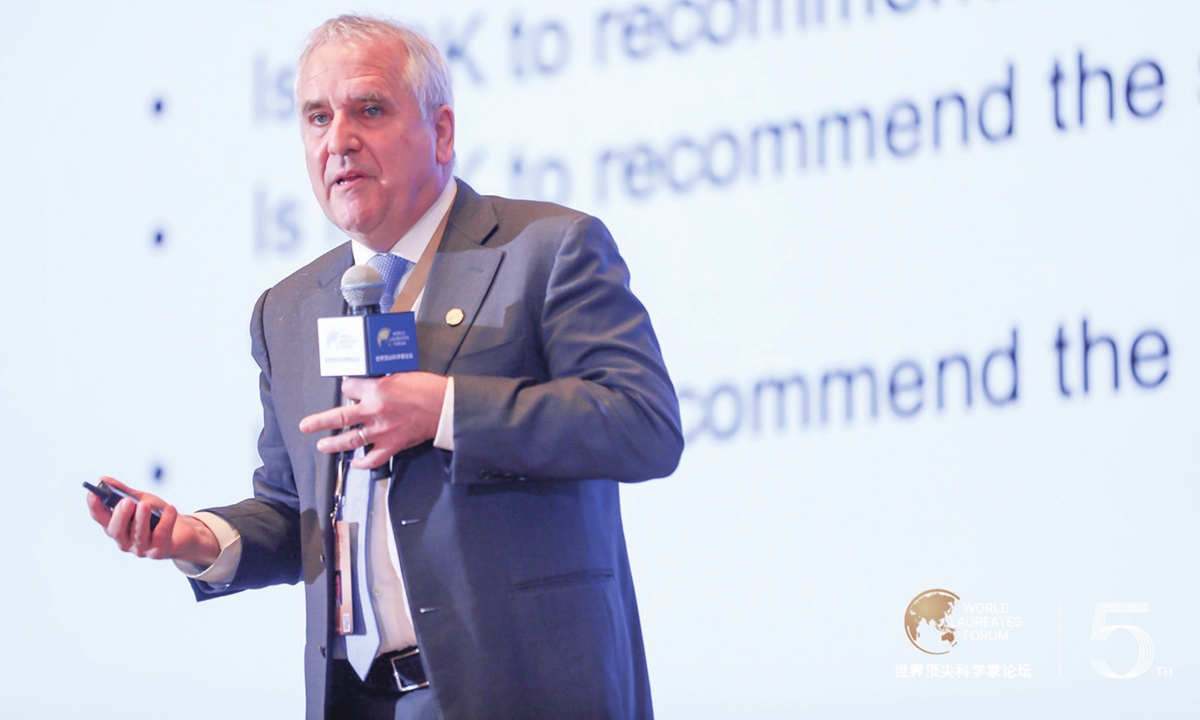
The winner of the 2022 WLA Prize Michael I. Jordan Photo: Courtesy of the World Laureates Association
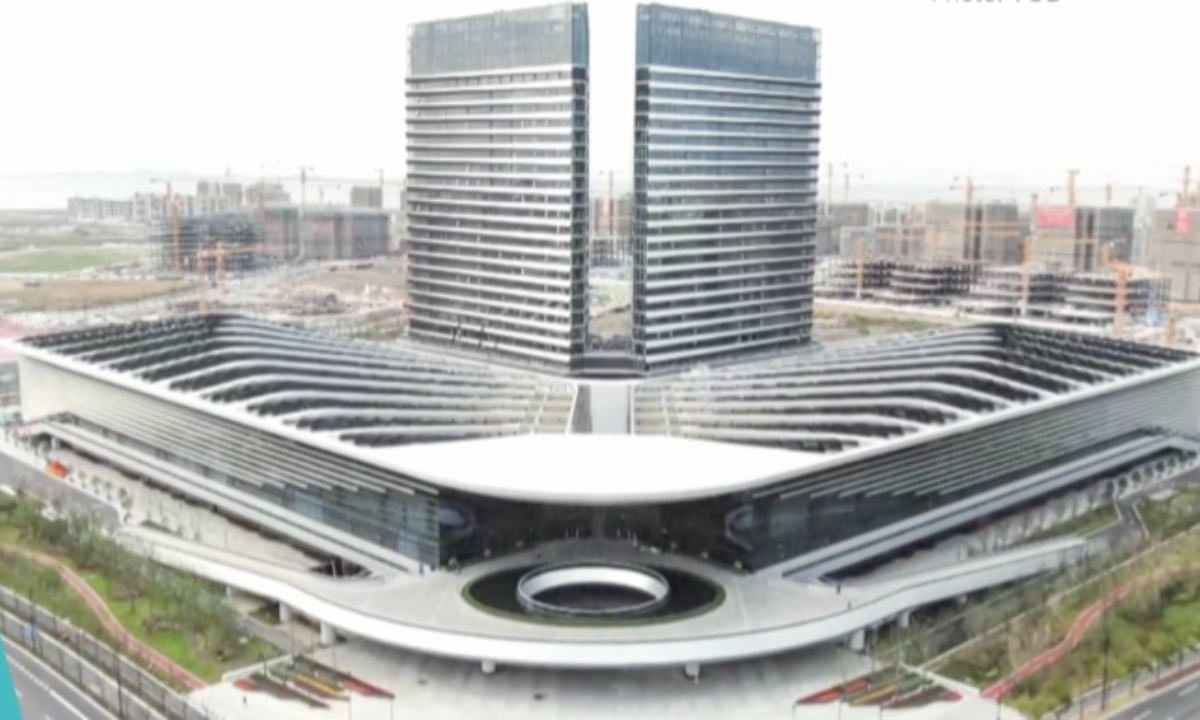
The Lingang Center in Shanghai, a permanent venue for the annual World Laureates Forum Photo: VCG
Walking the halls of the 2022 World Laureates Forum in Shanghai, Zou Yiming carries his favorite notebook everywhere. Half of the blue notebook, which the Jinan University student started to use at the 2021 edition of the event, is filled with mottos and theories of scientific laureates and his own thoughts and insights on scientific issues as well as signatures from renowned scientists like US chemist and structural biologist Raymond Stevens, Jiang Xuefeng, professor of chemical and molecular engineering.
Zou and his two friends, Ni Jiazhou from Hunan University and Tang Jie from The Chinese University of Hong Kong, had the pleasure to talk with three top scientists - Michael Levitt, Wang Pinxian and Efim Zelmanov - at the World Laureates Association (WLA) SCI-T Conference in late October.
The World Laureates Association is one of the top international organizations with the largest number of top scientists in the world hosted by China.
Last Sunday, themed "Science Forward: Create a Bright Future," the 5th World Laureates Forum kicked off in Shanghai, hosting worldwide professionals including 60 decorated scientists and 27 Nobel Prize winners, in discussion of a string of topics from sustainable development to food security.
Besides organizing various meetings and events such as the Zero Carbon Forum, She Forum and the newly-launched WLA Laboratories Forum, the association announced the two winners of the WLA Prize.
"With the help of the WLA Prize, top scientists from around the world compete on the same stage and learn from each other," said Yang Wei, an academician at the Chinese Academy of Sciences and foreign academician with the American Academy of Engineering, adding that those activities also help with promoting global academic exchanges and scientific research cooperation, and help build a more open scientific community.
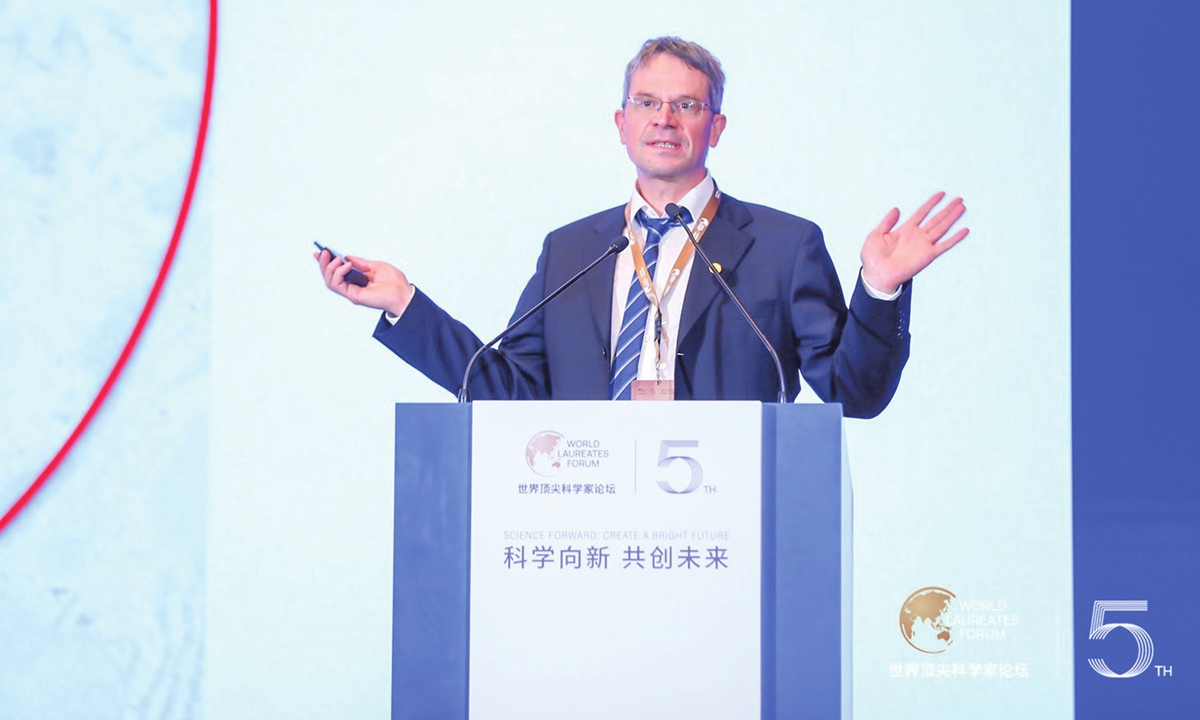
The winner of the 2022 WLA Prize Dirk Gorlich Photo: Courtesy of the World Laureates Association
International exchanges
Thousands of young people like Zou, Ni and Tang have benefited from such events at the forum as the organizer, the WLA, seeks to fulfill the three missions of promoting basic science, advocating for international cooperation and supporting the development of young people with the vision of "Science and Technology for the Common Destiny of Mankind."
The Prize in Computer Science or Mathematics was awarded to Professor Michael I. Jordan from the Department of Electrical Engineering and Computer Sciences & Department of Statistics at UC Berkeley, for his fundamental contributions to the foundations of machine learning and its application.
"It is particularly important for a field like computer science, which of course didn't exist as a field at the time of the creation of the Nobel Prize," said John Hennessy, 2017 Turing Award Laureate and chairman of the WLA Prize Selection Committee.
"As a result, that field has not received as much recognition as other older fields. But the WLA Prize will change this, because it's a really important prize and it's going to establish the field and strengthen it."
The 2022 WLA Prize in Life Science or Medicine was awarded to German biochemist Dirk Gorlich, scientific member and director of the Max Planck Institute for Multidisciplinary Sciences, for his key discoveries elucidating the mechanism and selectivity of protein transport between cytoplasm and the nucleus.
According to Roger Kornberg, 2006 Nobel Laureate in Chemistry and chairman of the WLA, the prize's establishment in Shanghai was a bid to announce support for cutting-edge science and technology and basic science.
"Basic science is the cornerstone of scientific and technological innovation," Yang added.
Back to basics
The two winners, who each receives a monetary award of 10 million yuan ($1.39 million), were selected from a total of 104 nominees from 17 countries and regions by committee members "who come from the US and Europe," according to Randy Schekman, 2013 Nobel Laureate in Physiology or Medicine and chairman of the WLA Prize Selection Committee. "Our goal is to find people whose work is fundamental and broadly applied, and yet who have not been recognized for their achievements, who deserve that recognition," Schekman said.
The basic sciences are relatively weak in China comparing with the applied sciences.
In recent years, the development of the basic sciences has gained more attention and the forum is significant in this regard, Wang Gengchen, a research fellow at the Institute of Atmospheric Physics of the Chinese Academy of Sciences, told the Global Times on Wednesday.
Many overseas researchers also joined in the seminars at the forum to promote international communication on basic science, Wang said, noting that this is an opportunity for Chinese scientists to learn from advanced experience.
"The further development of basic science cannot just be completed in a year or two. It is an endeavor that stretches from one generation to the next. So cultivating young scientists is extremely significant," Wang said.


